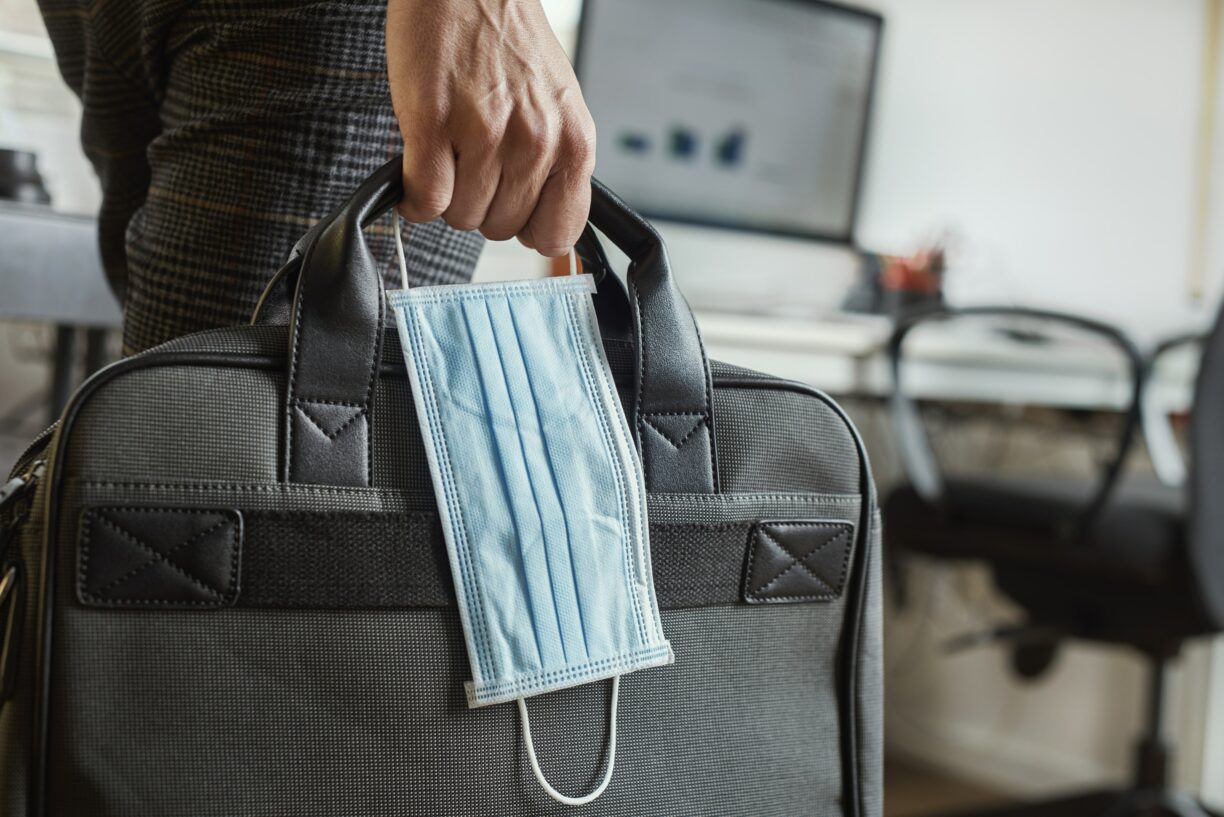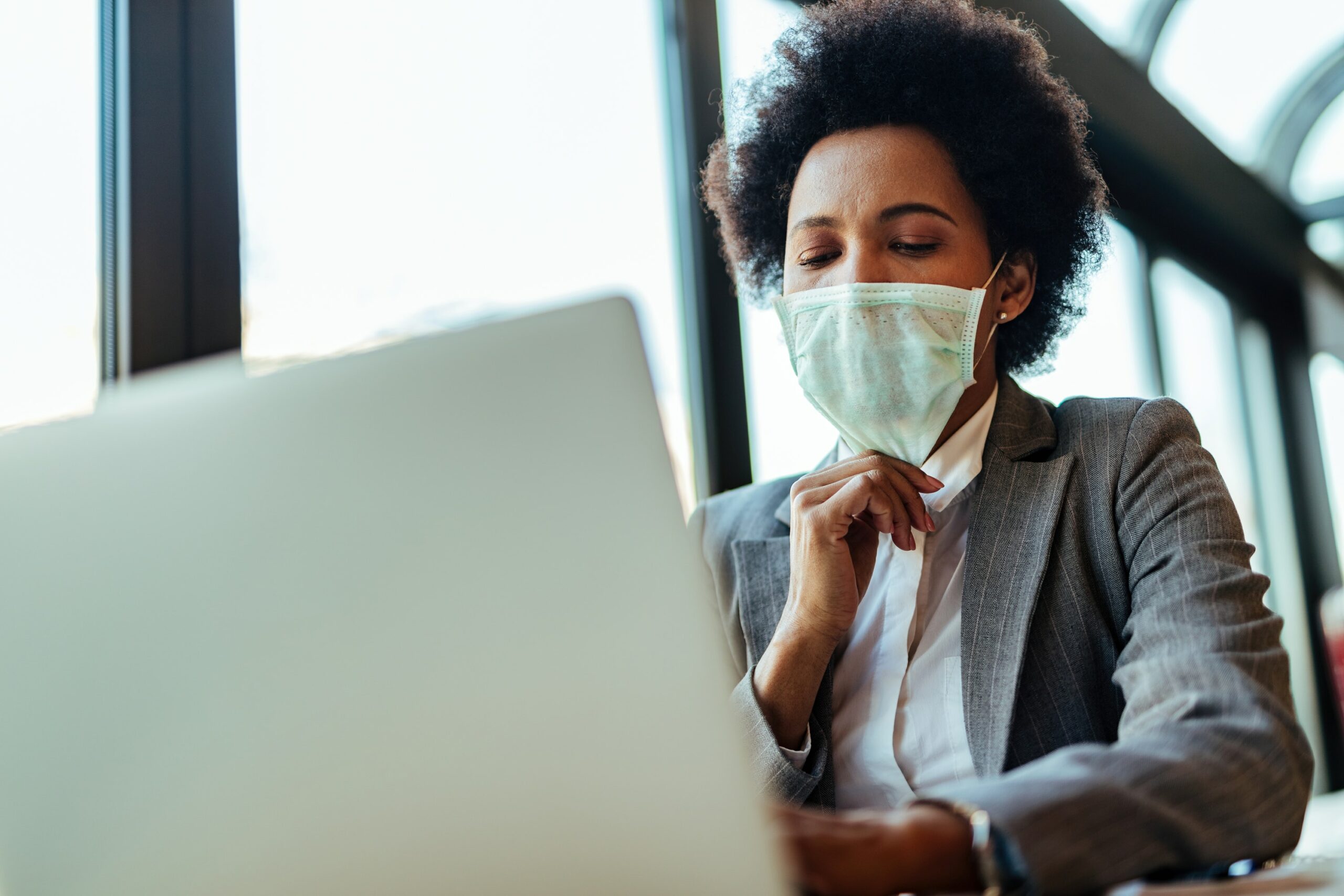After months of Zoom calls at the kitchen table, many workers in the UK and Ireland are preparing to pack up their laptops and head back to the office.
As restrictions begin to lift, you may be concerned about the prospect of a fresh outbreak and a second lockdown – but there are several steps many workers can take, particularly office workers, to help reduce the risk of infection for themselves and co-workers.
We asked hygiene experts to explain some simple but effective ways to stay as safe, healthy and socially responsible as possible at work…
1. Check what has changed in the office

Before you return to your office, it’s important to check if there are any policy changes you need to know about. “For example, your working hours may be staggered with your colleagues’ or you might be asked to enter through a different door,” says Phil Day, superintendent pharmacist at Pharmacy2U (pharmacy2u.co.uk). “It’s a good idea to check whether face coverings are compulsory and if masks and hand sanitiser will be provided by your company – otherwise, you’ll need to remember to pack your own.”
Some workplaces might ask staff to work in a different location, or to take a temperature test on arrival, so it’s good to familiarise yourself with any new measures that could require leaving the house a little earlier.
“When you do get back to work, take a moment to see what’s different,” adds Day. “There could also be one-way systems and cleaning stations on your floor.”
2. Keep your distance
After working in isolation for many months, it can be tempting to catch up with your work pals over a coffee in the kitchen, but it’s important to socially distance where possible and respect other people’s worries and anxieties.
“It might be hard to socially distance in the workplace, so be mindful of your old work routines,” says Day.
“Your co-workers are not your household,” he stresses. “Don’t shake hands or hug, and be respectful of distance in meetings and communal areas. It’s also a good idea to take the stairs rather than piling into a shared lift together.
2. It gets your brain in gear
“There will be lots of people you’ll want to catch up with, but don’t gather around the water cooler or cluster around a desk to share your gossip, as it could make others feel uncomfortable.”
3. Maintain hygiene
Practicing good hygiene habits is one of the easiest but most effective things you can do to say safe on return to the office.
Day says: “Your office should have extra cleaning measures in place, but it’s important that individuals take the initiative to disinfect their desk, screen, phone, keyboard and mouse regularly.
“If you need to sneeze, make sure to do it into the crook of your arm or into a tissue – and place any used tissues straight into a closed waste bin.
“I’d also recommend that you don’t touch your face, and wash your hands regularly, especially when you first enter the building. If you can open the windows in your office, that can help to let fresh air circulate too.”
4. Socially distance on the commute
“The close quarters of trains and buses,” says Tautvydas Karitonas, head of research and development for Inivos (hygiene-solutions.co.uk), combined with increased shared surfaces and touchpoints, “means workers encounter more chances of exposure to coronavirus while travelling.
“To ensure a safe commute, it’s essential that workers wear a face mask and socially distance from others while on board.”
“Transport chiefs should be doing their bit to minimise risk by scheduling regular deep cleans and decontamination of trains,” Karitonas adds.
5. Be aware of shared touchpoints
Touching a surface or object that may have the virus on it and then touching your own mouth, nose and eyes, can help spread it.
Jamie Woodhall, an environmental biologist and technical and innovation manager at Initial Washroom Hygiene (initial.co.uk) explains: “Contact with shared touchpoints is inevitable in an office and the important thing is to ensure you wash, dry and sanitise your hands after coming into contact with these.”
Woodhall says that key touchpoints to be aware of include doors and locks, toilet seats and flush mechanisms, toilet paper, baby change facilities, washbasins, kitchen apparatus and utensils and buttons for lifts.
“Once you’ve washed your hands,” he adds, “don’t forget to dry them too. Damp hands can spread significantly more bacteria, so be sure to thoroughly dry your hands using either an air drier or paper towel.”





